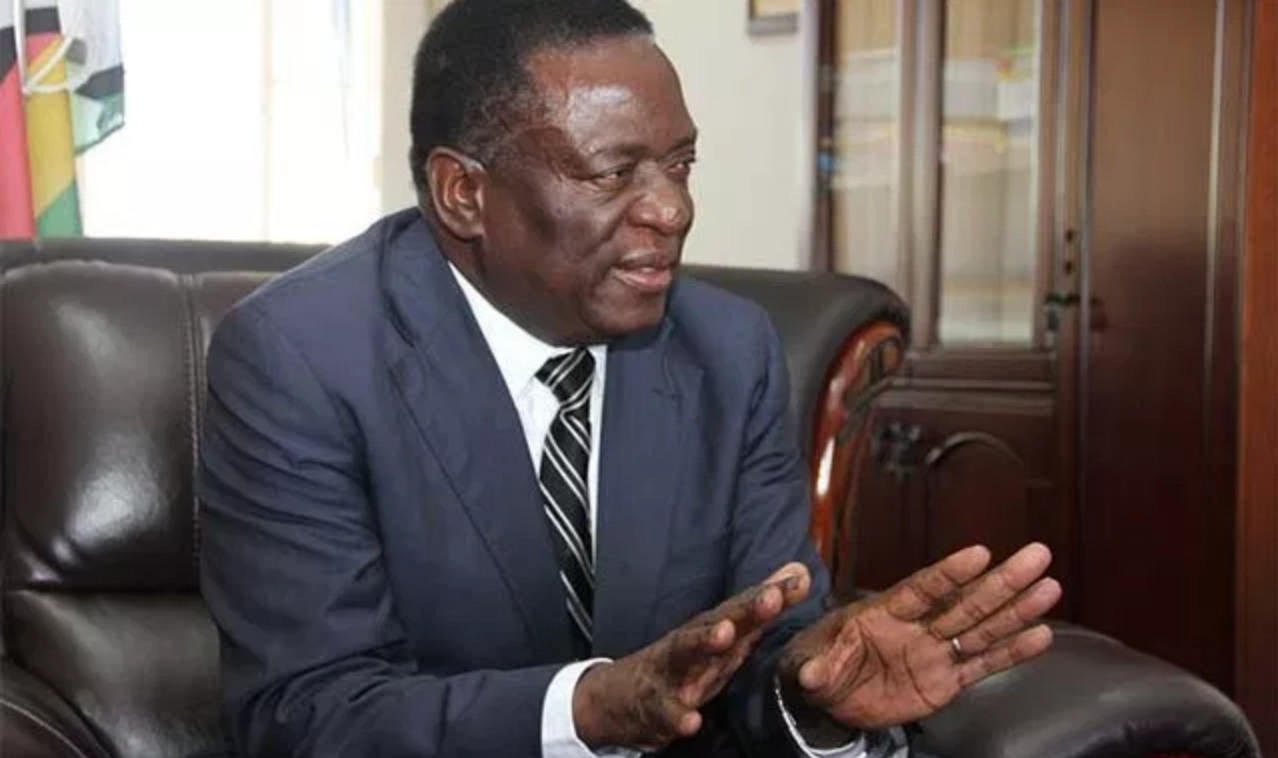AS GOVERNMENT continues to talk tough - threatening to deal decisively with businesses that are perceived to be profiteering - observers are wary the country could be sliding back to the dark days of price controls.
On Monday, President Emmerson Mnangagwa, pictured, told his supporters in Chipinge that his administration is setting up mechanisms to punish severely businesses that overcharge their goods.
"There could be other businesspeople who are not reviewing prices of commodities downwards; we are against such people, people should go to cheaper shops but in the meantime we are putting in place measures that will see those businesses being punished accordingly but some have followed the exchange rate and the prices are now okay," he was quoted saying.
Also on Monday while appearing before Parliament, Reserve Bank of Zimbabwe governor John Mangudya, said soon they would crack down on businesses trading in foreign currencies. This followed the outlawing of the use of the multi-currency regime in Zimbabwe and the re-introduction of the Zimbabwe dollar
Analysts told the Daily News yesterday that Mnangagwa's government was not learning from history. Faced with runaway inflation in 2007, former president Robert Mugabe embarked on a crackdown of businesses that were perceived to be inflating prices - in a fatal move that eventually saw shops' shelves emptying.
Political analyst Admire Mare said the dark days of Mugabe are beckoning with businesses likely to react by holding back and creating real or artificial shortages.
"It is very unfortunate that we are going back in cycles in terms of issuing out threats to business and pushing them to charge sub-economic prices at a time inflation is affecting everyone," said Mare.
"This has a net effect of pushing business to stop stocking goods because of fear of being forced to charge what is below market rates.
"The best way for the government is to negotiate with business and finding lasting solutions to the issue of prices and currency turbulence.
"There is more to be gained through constructive dialogue rather than resorting to using the stick to whip business into line.
"In the past, such measures led to closure of companies and the disappearance of goods from the shelves," he added.
MDC deputy spokesperson Luke Tamborinyoka said Mnangagwa wants to take Zimbabwe back to the Stone Age era.
He said "command politics" will not work and will ultimately result in shortages. "…this is really a cause for concern because it is picked straight from Mugabe's handbook," said Tamborinyoka.
Professor of World Politics at the London School of Oriental and African Studies Stephen Chan said threats targeting businesses could blow in the face of government and reverse whatever small strides that have been made in restoring investor confidence since the demise of Mugabe.
"There is very naive and dangerous financial policy being enacted in Zimbabwe. You can't have a command economy if, at the end of the day, there is nothing to command," said Chan.
"There is no production of local goods, and there is no money for imports. It is not over-charging. It is a response to scarcity of supply. The suspension of the United States dollar as national currency, because Zimbabwe can no longer source dollars, will be at the very least a short-term disaster".
Chan said any national currency must have a productive base, repeating his projection that inflation will rise to 300 percent and then, given a lot of favourable circumstances, stabilise at roughly that level.
"That's a rough ride for Zimbabweans. But, frankly, the president should be offering incentive and economic stimulus packages rather than price controls and increased efforts to borrow money," said Chan.
- dailynews
 Concern over Masvingo black market
Concern over Masvingo black market  Kenya declares three days of mourning for Mugabe
Kenya declares three days of mourning for Mugabe  UK's Boris Johnson quits over Brexit stretegy
UK's Boris Johnson quits over Brexit stretegy  SecZim licences VFEX
SecZim licences VFEX  Zimbabwe abandons debt relief initiative
Zimbabwe abandons debt relief initiative  European Investment Bank warms up to Zimbabwe
European Investment Bank warms up to Zimbabwe  Young Investment Professional (YIP) Graduate Programme 2019
Young Investment Professional (YIP) Graduate Programme 2019 











 Young Investment Professional (YIP) Graduate Programme 2019
Young Investment Professional (YIP) Graduate Programme 2019
Editor's Pick